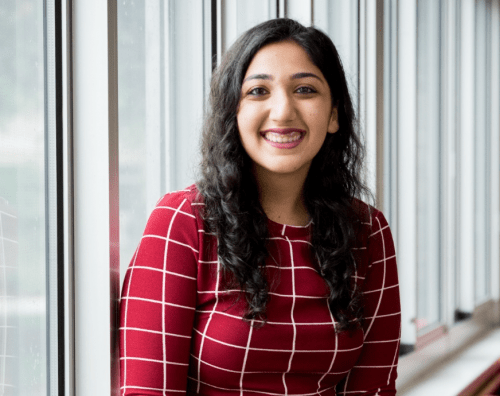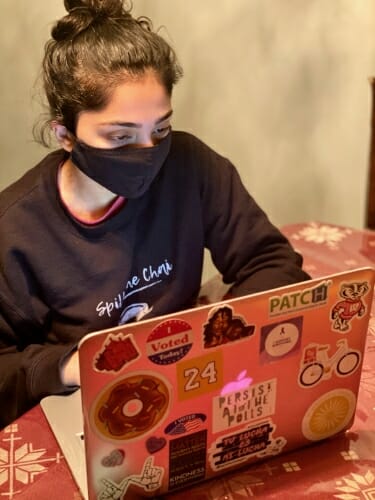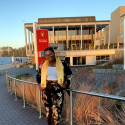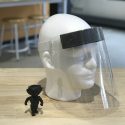Student’s resilience through 2020 is inspiring
The year 2020 was difficult for everyone, with the COVID-19 pandemic forcing changes in all our lives.
But UW–Madison senior and Posse scholar Shehrose Charania of Chicago went through a particularly difficult year, with members of her family suffering from the disease and even losing health insurance.

Photo submitted by Shehrose Charania.
But Charania carries positivity with her even during difficult times. She’s been able to thrive at UW–Madison despite 2020’s adversity. She was named the 2020 Newman Civic Fellow, and she was one of the first students to enroll in the new bachelor of science in Health Promotion and Health Equity degree program.
The daughter of Pakistani immigrants, she’s committed to fighting health inequities that affect immigrant and refugee populations.
One of the major takeaways of 2020 for Charania is the importance that healthcare workers and other essential workers have in our lives.
“Healthcare providers and essential workers are HEROES. My sister is a nurse and my mother works at the airport. Two of the most transmissible places right now,” she said.
Charania saw firsthand the toll that the pandemic took on workers who were still expected to fulfill their jobs through the chaos and suffering.
Once her mother and sister returned home from work, their main priority was to keep everyone else in their household safe, she said.
“I see how when they come home, they don’t come by to say hello… rather the first thing they do is they take off their clothes, jump into the shower and stay away from me and my dad as far away as possible,” she said.
The pandemic also canceled a possible opportunity for Charania to take part in a summer enrichment program at the University of Michigan Future Public Health Leaders Program, which would allow her to further explore public health.
But that only motivated her to search for other opportunities.
“As I became more determined to learn about the health inequities that were exposed due to this pandemic, I was selected as a mentor for a Virtual Leadership Summit (VLS) called Project LEAD that was hosted by my mosque,” she said.
This experience allowed Charania to lead a group of Muslim high school students through conversations that were often difficult, relating to how COVID-19 was disproportionately affecting BIPOC communities.
Through all of this Charania’s family was directly affected by the virus. Her mother, who has diabetes, contracted the virus while working her essential job.

Having family members as essential workers causes to wear a mask in the house most of the time including when she is doing remote learning.
“Those were the most terrifying weeks I have encountered. Every day, it was worrying about if she was going to get better and how she would recover,” she said.
Fortunately, her mother was able to make a full recovery; then Charania was faced with battling the virus herself, even as she was a full-time student.
It didn’t get easier for her family. “In the following months, my father was unemployed as he was employed as a waiter. Due to limiting contact and closures of social places like hotels, people like my father lost their job,” she said.
And when he lost his job, he also lost the health insurance that covered the family.
“It was difficult being a student while having COVID, taking care of sick family members, and fearing our future when it came to our access to health care,” she said.
Through all of these difficult times, Charania also learned a lot about herself. She learned just how important her mental health is to her well-being.
“I learned to love myself again and take care of myself. I used quarantine to take a step back from reality to build healthy habits, reach out to loved ones and be kind to myself as we live in times of uncertainty,” she said.
Charania’s story is not just encouraging but is also an example that it is okay to not always be okay. We will not always be in a good place in life and that is something that we all have to deal with.
Charania looks back on 2020 as a big life lesson and has a lot of hope for what 2021 will bring. Above all, she is hopeful for healing.
“I also hope 2021 can be truly a year of healing where we can not forget 2020 when we have faced a racial pandemic and also a health crisis, but rather take initiative to fix a system that is ultimately flawed,” she said.
Tags: covid-19, diversity, health & medicine



